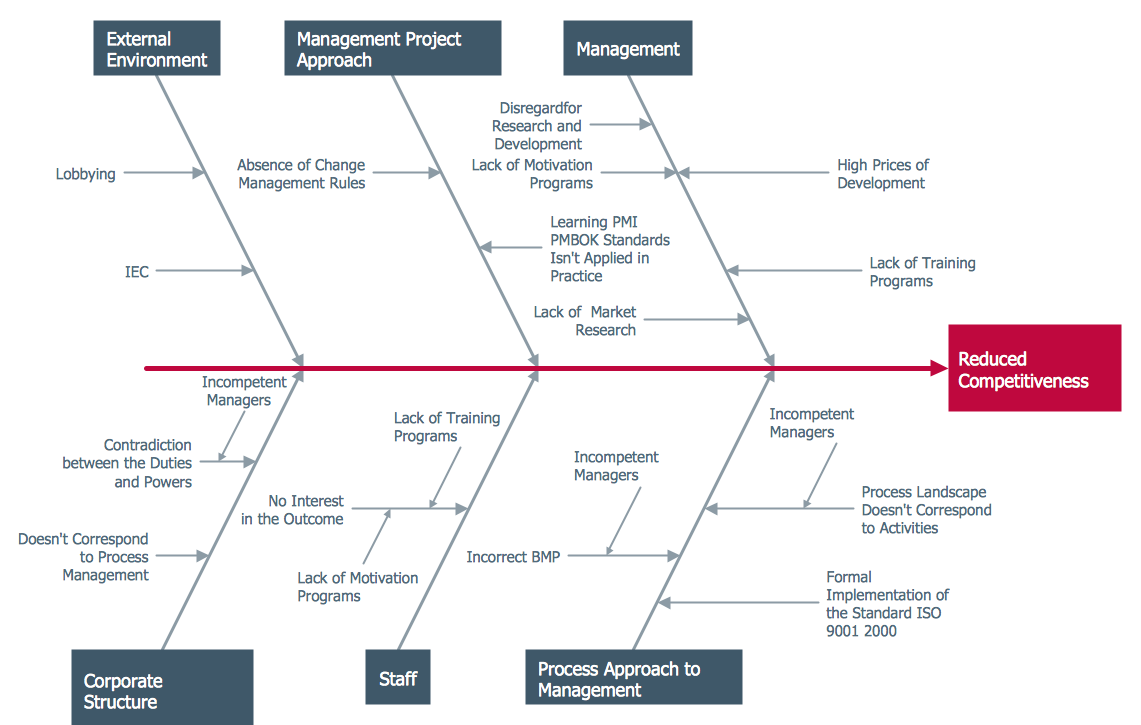Ishikawa Diagram
In almost every sphere of life and work the people time to time are faced with the fact that on their way there are certain obstacles and problems. But it is not always possible to identify the true cause of particular problem. To understand the basic causes of problems and eliminate them, it is convenient to use the chart of Kaoru Ishikawa - the technique specially designed for this.ConceptDraw PRO diagramming and vector drawing software extended with Fishbone Diagrams solution from the Management area can help you with construction the Fishbone Diagram also known as Ishikawa Diagram.
Ishikawa Diagram shows factors of Equipment, Process, People, Materials, Environment and Management, all affecting the overall problem in one drawing for the further analysis. It is a well effective way to analyze the business problems you must identify and solve.
- Mathematics Symbols | Chemistry Equation Symbols | Basic ...
- Drawing Software Equation
- Basic Flowchart Symbols and Meaning | Flowchart Component ...
- Basic Diagramming | Types of Flowchart - Overview | Basic ...
- Basic Flowchart Symbols and Meaning | Contoh Flowchart | Solving ...
- Solving quadratic equation algorithm - Flowchart | Process ...
- Solving quadratic equation algorithm - Flowchart | Basic ...
- Solar System Symbols | Sun Solar System | Basic Diagramming ...
- Flowchart Diagram For Solving A Given Problem
- Logical network diagram - Vector stencils library | LDAP - Vector ...
- Basic Flowchart Symbols and Meaning | Account Flowchart ...
- Flowchart Definition | Basic Flowchart Symbols and Meaning ...
- Chemistry | How to Draw Chemistry Structures | Chemistry Equation ...
- Mathematics | Mathematical Diagrams | Basic Diagramming ...
- Basic Flowchart Symbols and Meaning | Process Flowchart ...
- Basic Flowchart Symbols and Meaning | Flowchart design ...
- Basic Flowchart Symbols and Meaning | Business Process ...
- Basic Diagramming | Concept Maps | Mathematics | Concept ...
- C Programming Project Sample With Flowchart
- Basic Flowchart Symbols and Meaning | Business Process ...
